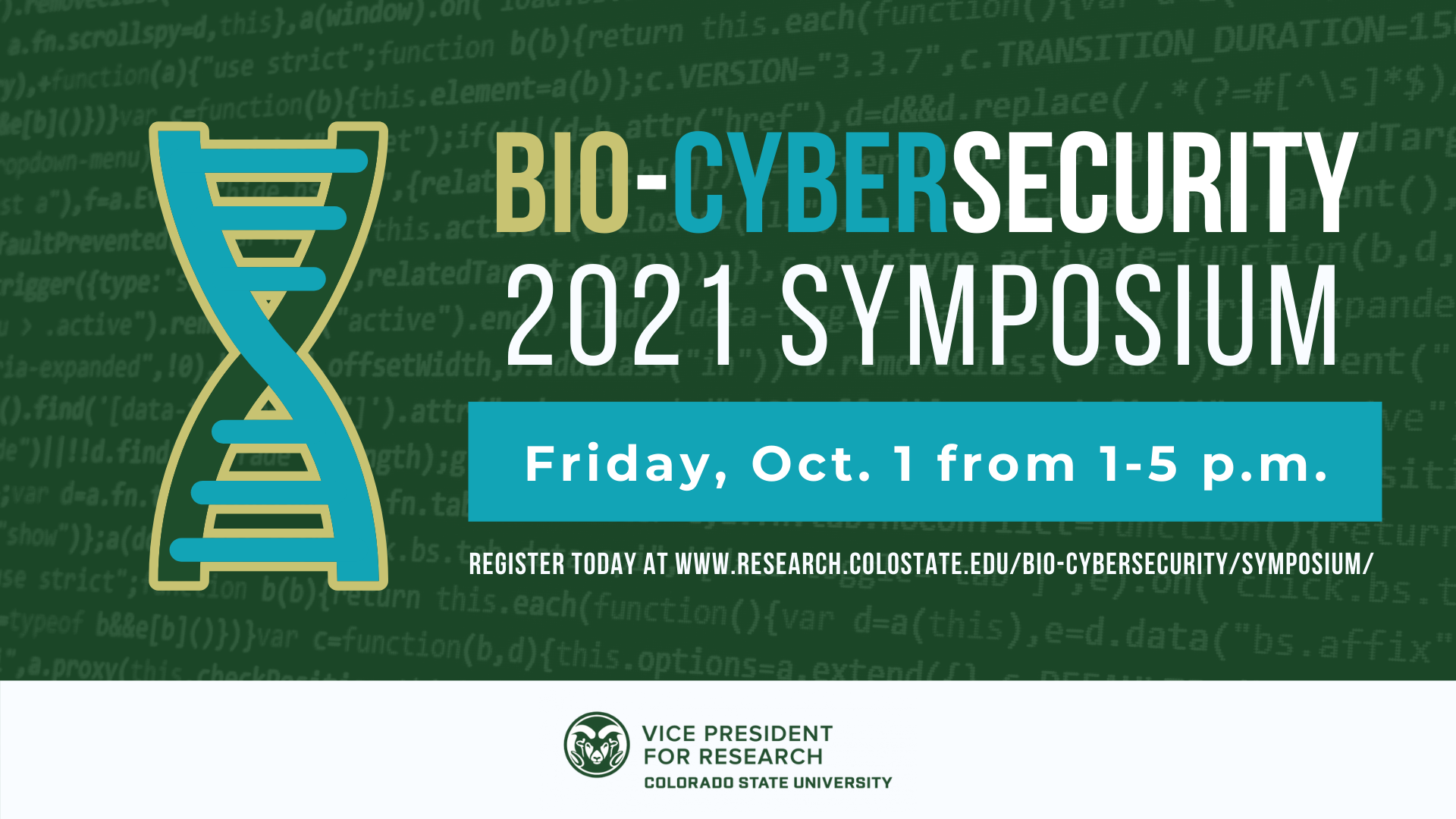
In an effort to halt a new type of hacking, Colorado State University will sponsor an online symposium next week featuring national experts examining the risks and opportunities of bio-cybersecurity.
The Oct. 1 “Bio-cybersecurity Challenge 2021 Symposium” is part of CSU’s growing emphasis on securing a web-connected world from threats of piracy against research data and interference with biotechnology manufacturing, agriculture and the function of medical devices. More than dance videos and pet photos whiz through cyberspace; increasingly, an entire biological science-based economy rides atop the internet – as vulnerable to hacking as your credit card or corporate financial records or the electrical grid.
Among the threats to research and development: DNA synthesis; biomanufacturing operations; ransomware threats to hospital systems; and vulnerabilities to the operating systems of research and industrial equipment used in critical life sciences discovery. During the COVID-19 pandemic, there have been reports of increasing cyber threats to SARS-CoV-2 research databases and manufacturing operations.
At risk are production of therapeutics, vaccines, chemicals, energy and agriculture. Experts say whoever controls the data has great power over the healthcare industry, the global economy and national security.
“The life sciences community is particularly vulnerable,” said Alan Rudolph, vice president for research at CSU. “These challenges need multidisciplinary research collaboration and new educational efforts, and CSU researchers are well placed to help find solutions.”
To address cyber-biosecurity concerns, CSU symposium presenters include:
- Doug McKalip, senior advisor to the secretary of the U.S. Department of Agriculture
- Jean Peccoud, professor at the Department of Chemical and Biological Engineering and the Abell Endowed Chair in Synthetic Energy at CSU
- Kelvin Lee, director of the National Institute for Innovation in Manufacturing Biopharmaceuticals and Gore Professor of Chemical and Biological Engineering, University of Delaware
- Charles Fracchia, CEO of BioBright and vice president of data at Dotmatics
The event occurs from 1-5 p.m. on Oct. 1. Agenda and free registration are available here.
Special for students: an online “Bio-cybersecurity Student Challenge Orientation” begins 30 minutes prior at 12:30 p.m. on Oct. 1. That orientation will explore future career opportunities in this emerging field. The orientation also sets up a series of activities to occur later this year and early next semester, culminating in a Spring 2022 “Bio-cybersecurity Challenge.” The challenge will be a two-day event during which students tackle real-world problems for cash prizes while building skills for a career in bio-cybersecurity.
“Creating strategies for reducing bio-cybersecurity risks requires interdisciplinary teams, and this student challenge event will be a special opportunity for students from different majors to develop their skills together in a fun learning environment,” said Ken Reardon, the event organizer and professor of chemical and biological engineering and the Jud and Pat Harper Chair of Chemical and Biological Engineering.
In addition, the CSU Office of the Vice President for Research invites the CSU research community to submit proposals under a new, interdisciplinary grant program to accelerate bio-cybersecurity solutions. The program will provide up to five grants of $50,000 each with funds provided by the Denver-based Anschutz Foundation. Researchers interested in the funding opportunity are strongly encouraged to attend the Oct. 1 symposium to network and hone their proposals.